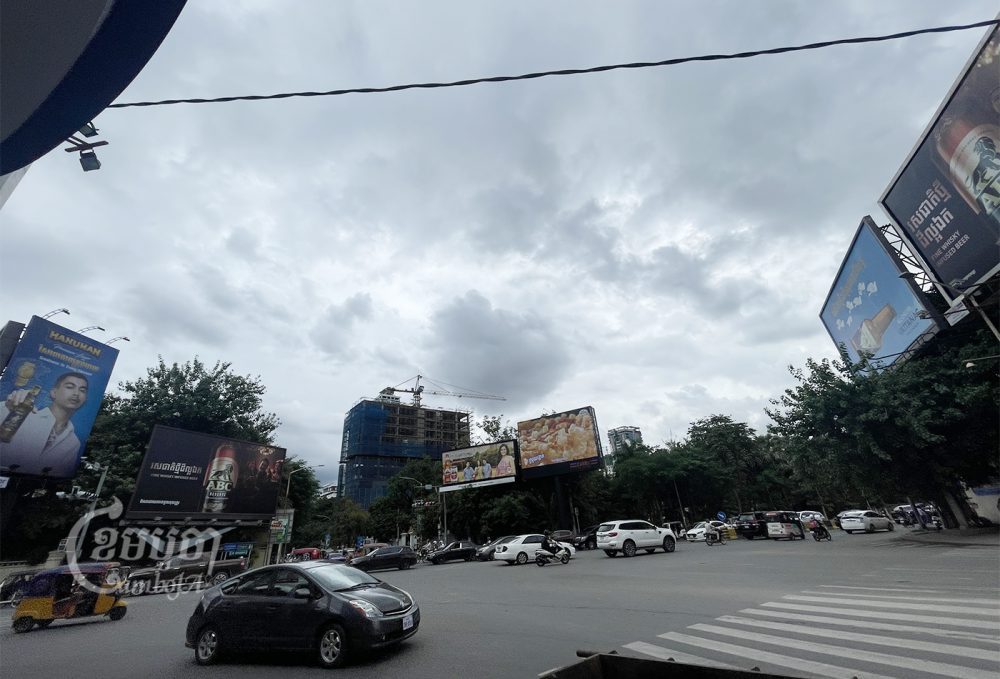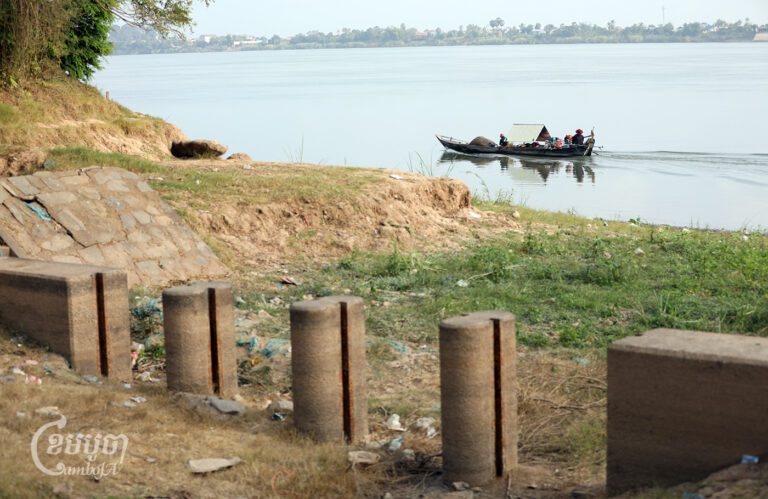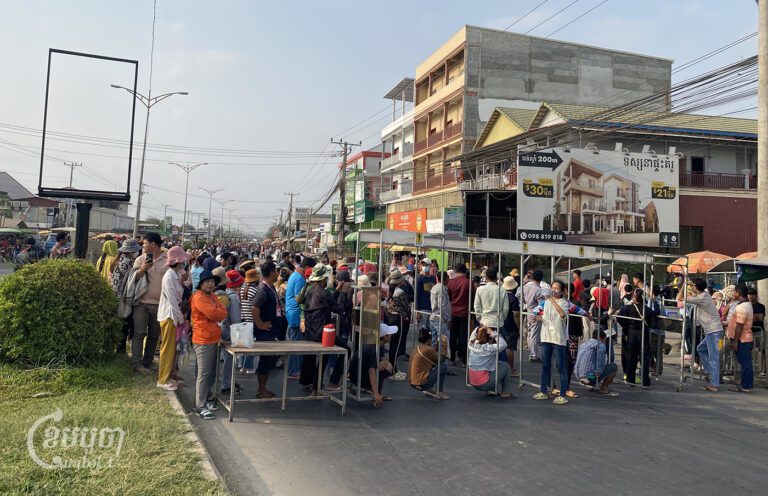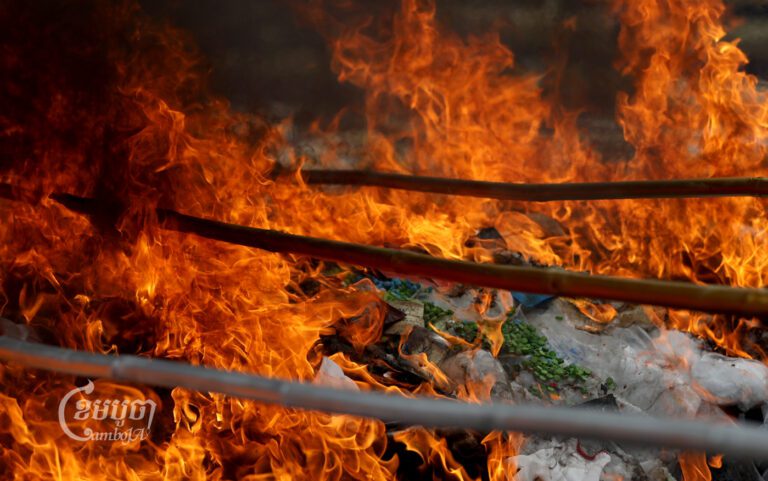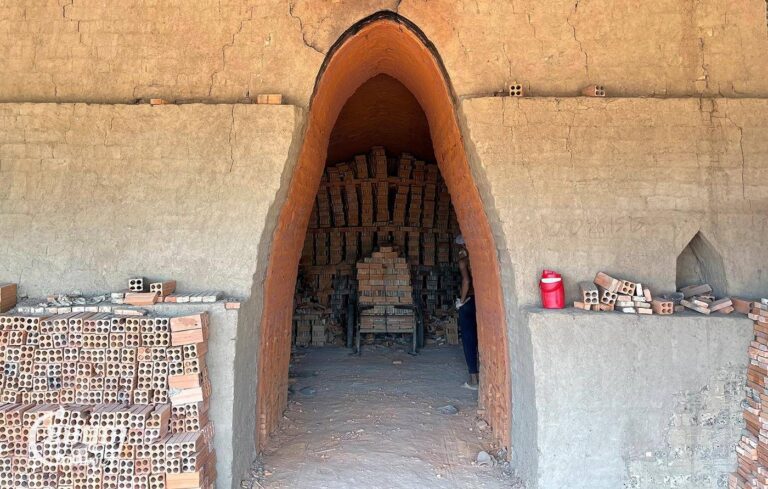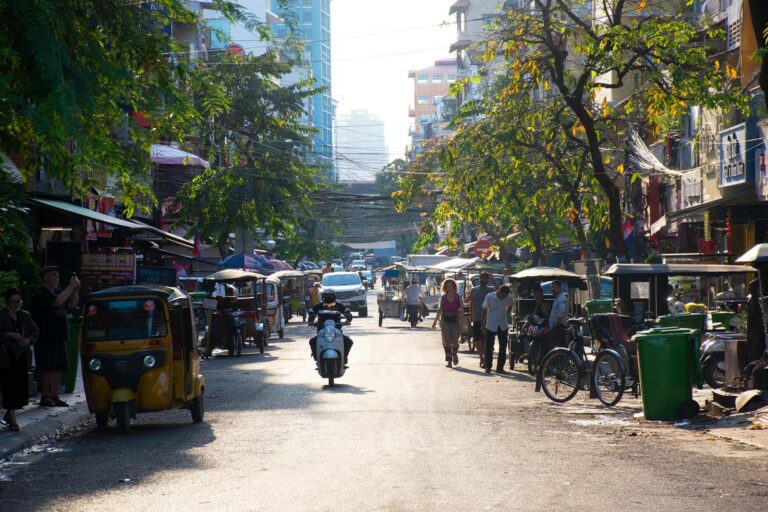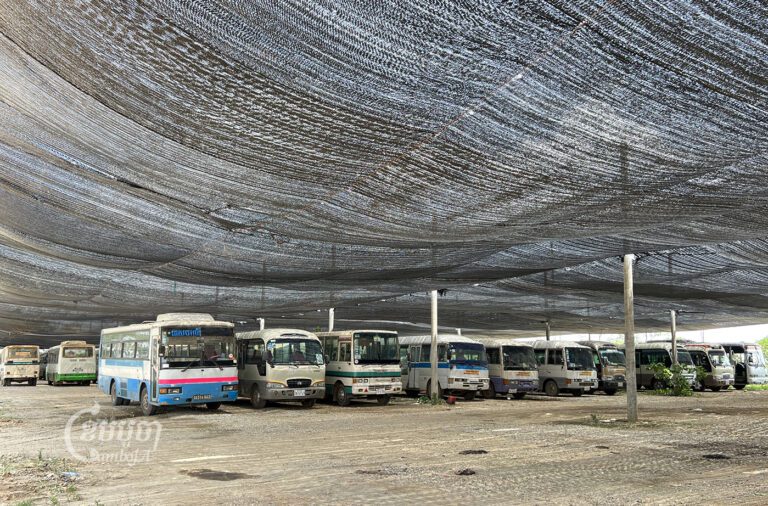It appears that Cambodia’s a country that likes its alcohol. Two new beer producers have emerged in the last two years alone and everywhere you look there are billboards advertising beer and other beverages.
But some experts are concerned the government is encouraging drinking because it benefits the economy, and ignoring the negative social impacts of heavy alcohol consumption, with a long overdue law on alcohol control stalled in the draft stage.
In just the last two years, Vattanac Brewery Ltd and Hanuman Beverages, joined a market already crowded with four major existing breweries: Cambrew, Khmer Beverages, Cambodia Brewery Ltd, and Ganzberg Brewery.
The two newcomers have collective investment worth more than $300 million.
Vattanac Brewery Ltd, is a subsidiary of Vattanac Group, the conglomerate behind the Vattanac Capital Tower and Vattanac Bank. Oknha Vattanac Sam Ang, executive director of Vattanac Brewery Ltd did not respond to emailed request for comment on the new beer brand.
Hanuman Beverages is another newly established brewery, and is using popular Cambodian rapper Vanda to promote the brand in its advertisements directed at the youth.
CamboJA was unable to reach the company for comment, however in its distribution plan, Hanuman said: “We are setting up many distribution centers in cities and will partner with reliable business partners to ensure there is always a local distributor near you.”
The beer market in Cambodia was worth $1.03 billion in 2015 and is forecast to reach $2.20 billion by 2025, according to the data company Market Research. The report showed the average consumption per capita in value terms reached $67.42 in 2015.
However Yong Kim Eng, president of NGO the People Center for Development and Peace, said the government seems to be encouraging alcohol consumption, which is contrary to its safe villages and communes’ policy.
“The government should be careful as the draft law on alcohol remains under discussion,” he said. “If we are talking only about revenue, it is a lot, but considering the social impact is even more important and the state is the loser when traffic accidents (many caused by drunk driving) cost hundreds of millions of dollars a year.”

Kim Eng said the government has been drafting a law on alcohol control since 2015, but it has stalled under the three ministries concerned: Education, Health and Transportation. He said he believes the delay in drafting the law is due to a conflict of interest: the links between officials and the private sector.
Brewery inaugurations are often attended by influential government officials, including Prime Minister Hun Sen.
“Investors have close ties with powerful politicians. They [investors] had persuaded the officials not to rush the law, as it has also benefited those individuals. So, it has been delayed,” said Kim Eng.
He believes the law should focus on four key measures: raising taxes on alcohol, restricting the availability of alcohol, age restrictions, and restricting advertising.
All advertising of alcohol products comes under the authority of the Ministry of Information and Phnom Penh City Hall.
Lim Nora, Deputy Chief of Phnom Penh’s Advertising Office declined to comment, referring CamboJA to City Hall. Met Meas Pheakdey, a spokesman for Phnom Penh City Hall, said the authority was acting in accordance with the law and had no right to limit the scope of alcohol promotion.
“You should ask the relevant ministries that issue permits for the promotion of alcohol. If it (advertising) follows the law and has the permission of the ministry, there is nothing we need to do,” he said.
Ministry of Commerce undersecretary of state Pen Sovicheat said the ministry’s Consumer Protection Competition and Fraud Repression Directorate-General (CCF) monitors all advertisements to protect consumers.
“We don’t have a law yet to ban alcohol advertising, but we try to restrict advertising that is encouraging people – so we have contributed to curbing alcohol promotion as well,” he said.

One of the major problems caused by over-consumption of alcohol is drunk-driving. Last year a UNDP report said an average of 5.4 people die on Cambodia’s roads daily, with 13,700 injuries and more than 2,000 deaths due to traffic accidents in 2019 . The cost to the economy was significant, it said, an estimated $466.8 million.
Kong Ratanak, director at the Institute for Road Safety, said that the absence of a law on alcohol was part of the problem.
“We urge the government to speed up the law because the increased distribution of alcohol is a high risk for public health, especially for the young generation,” he said.


